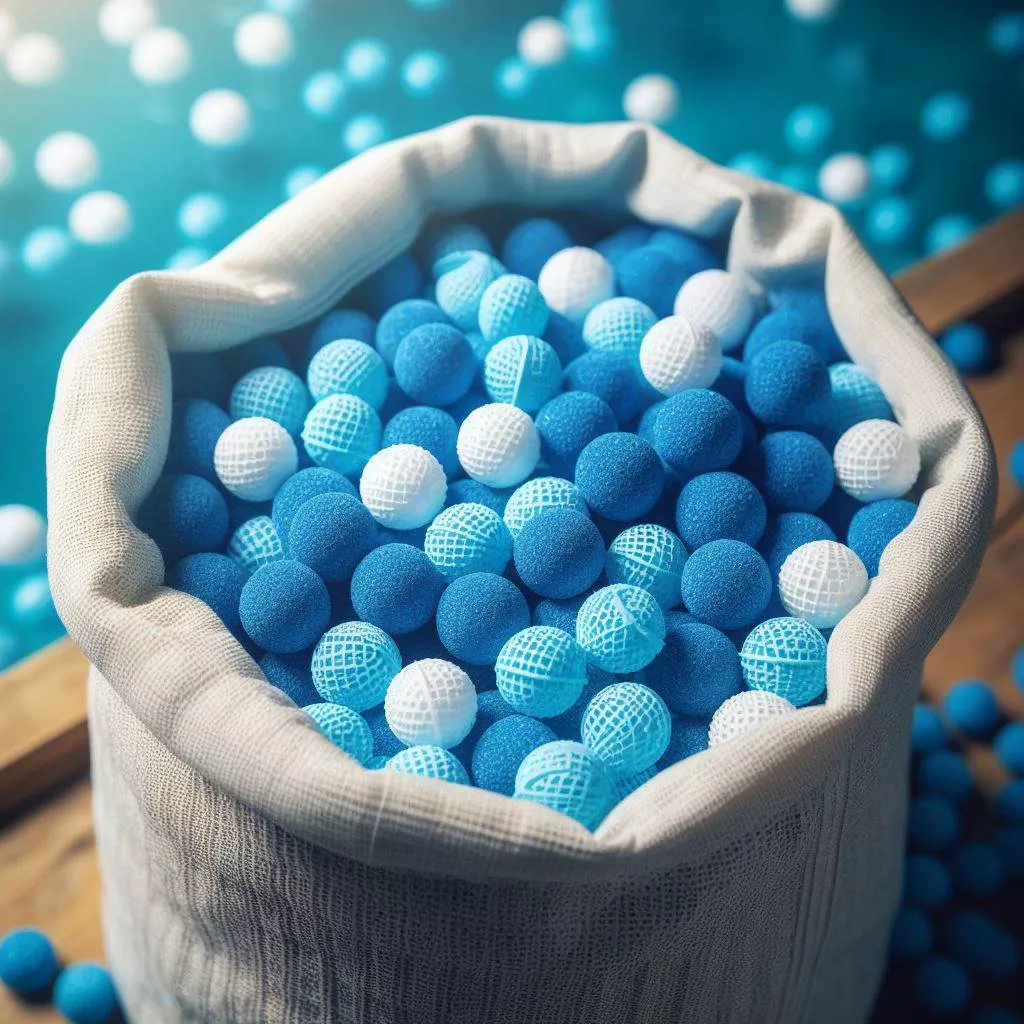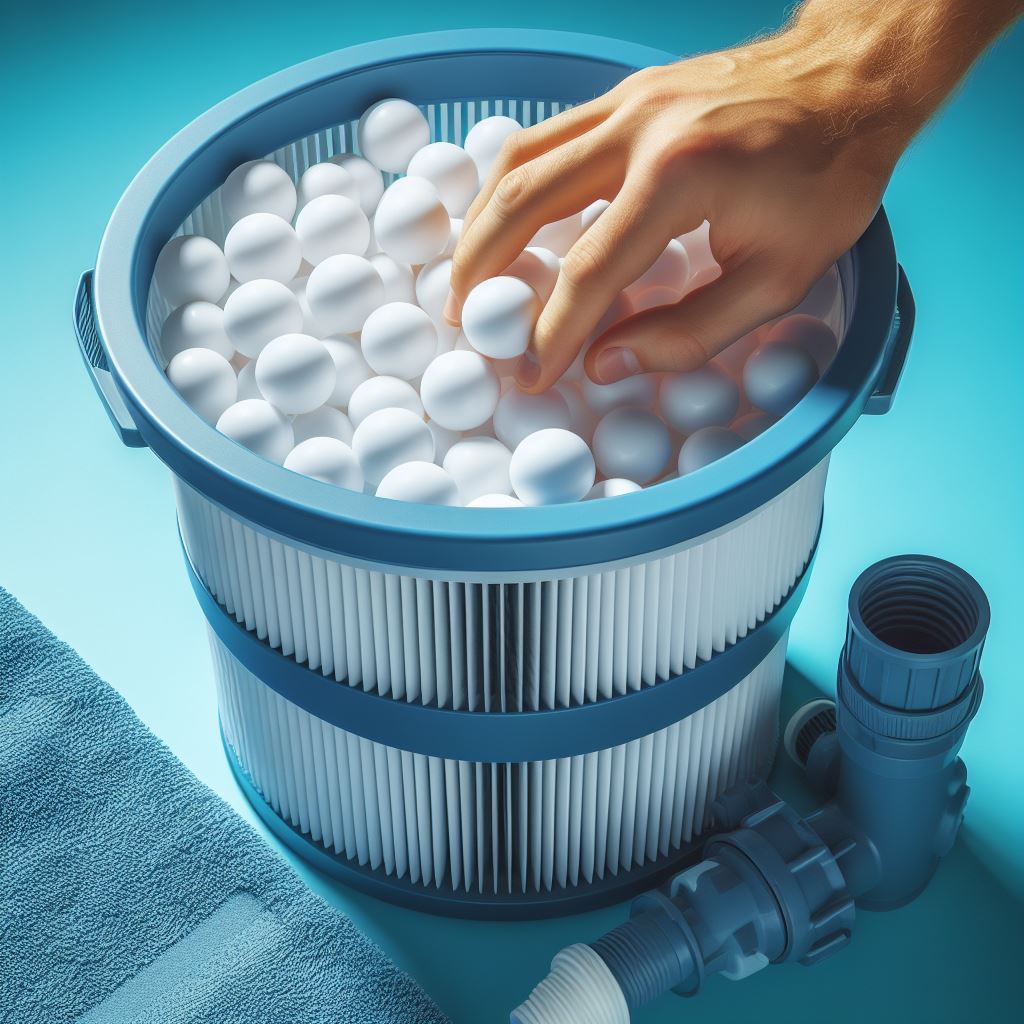While enjoying the cool and fun brought by a family swimming pool, maintaining the cleanliness and safety of the pool water is a challenge every pool owner must face. As a modern and efficient filtration solution, pool filter balls offer an eco-friendly and economical method to achieve this goal. Before delving into the various performances and usage strategies of filter balls, let’s first understand why choosing filter balls is a wise choice for maintaining pool cleanliness.

Detailed Explanation of Filter Ball Materials and Design
Filter balls are made from high-density polyethylene (HDPE), a material widely used for its durability and environmental friendliness. The design of the filter balls cleverly utilizes physical space, with each ball having countless small holes that can efficiently capture tiny particles in the pool. This design not only improves filtration efficiency but also greatly simplifies the handling and replacement process of the filter medium due to its lightness.
Working Principle and Efficiency
Filter balls clean pool water through a series of physical and some biological processes. As water flows through the filter balls, their unique structure increases the contact area with the water, effectively trapping particles and impurities. This filtering method is not limited to mechanical cleaning; the tiny pores also provide an environment that supports the growth of beneficial bacteria, which can further help break down organic matter in the water, enhancing the cleaning effect.
Lifespan and Performance Degradation
The effectiveness and durability of filter balls are influenced by various factors. These include the chemical treatment methods of the pool, the frequency of use, and the quality of the pool water itself. Chemicals like chlorine may gradually reduce the efficiency of filter balls, while high usage frequency might accelerate physical wear. Understanding these factors and adjusting maintenance strategies appropriately can effectively extend the lifespan of filter balls.
Maintenance and Cleaning Recommendations
Regular maintenance is key to ensuring sustained performance of filter balls. Cleaning the filter balls not only removes clogged dirt but also prevents the growth of bacteria. The recommended cleaning frequency is once a month, using mild detergents and water for hand washing. It is important to note that excessive cleaning or the use of strong chemicals can damage the structure of the filter balls.
Environmental Impact and Economic Considerations
Choosing filter balls is considered not only for their efficiency but also for their environmental impact. Filter balls are reusable, reducing waste production, and the materials used in their production are recyclable, which is a significant advantage for families seeking sustainable lifestyles. Additionally, due to the efficiency and longevity of filter balls, they can help pool owners save more on maintenance and replacement costs in the long run.
Conclusion
Family pool filter balls offer an efficient, eco-friendly, and economical solution to ensure the cleanliness and safety of pool water. By properly maintaining and using filter balls strategically, pool owners can maximize the benefits of filter balls and enjoy a clean and safe swimming experience. Choosing filter balls is not only an investment in your family pool but also a commitment to environmental protection.

